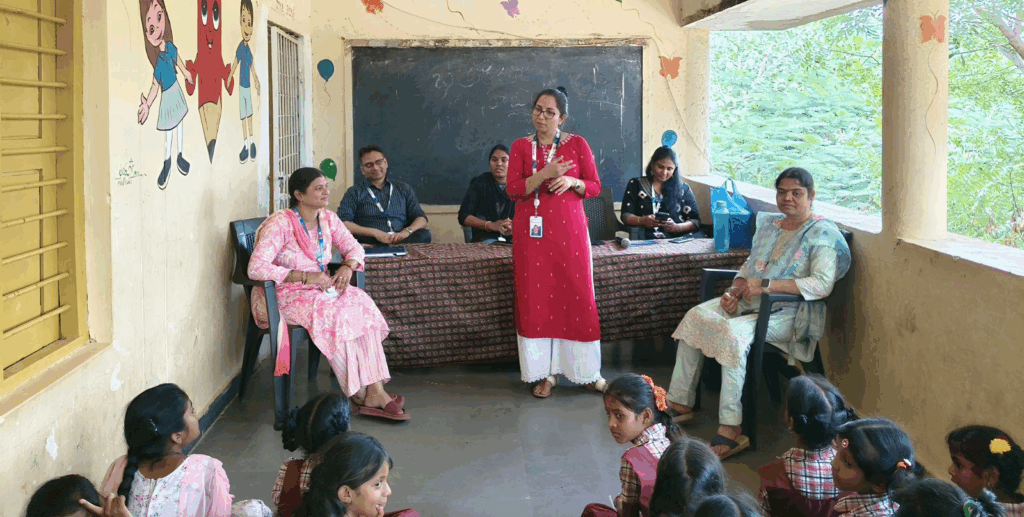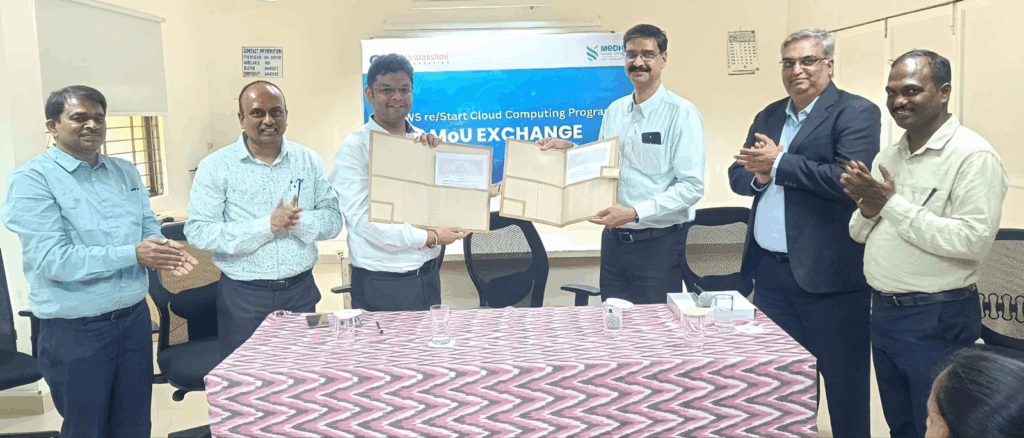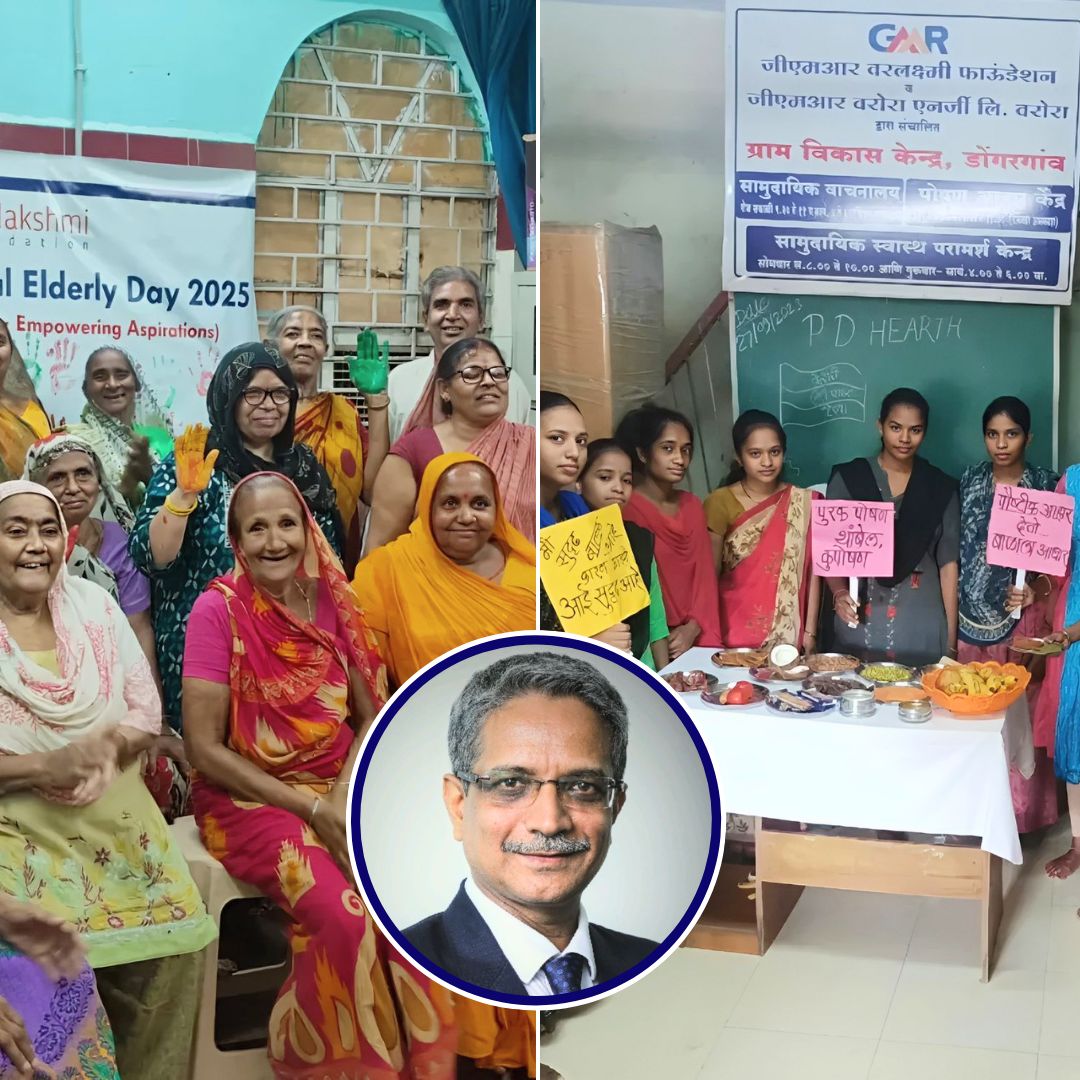Since taking the helm at GMRV, Saxena has orchestrated focused programmes emphasizing sanitation and hygiene a national priority given India’s health metrics skill development to boost employability, and climate resilience initiatives.
The Foundation’s multi-state initiatives use evidence-based planning and monitoring frameworks to enhance community impact, particularly targeting vulnerable rural and urban populations.
At the 9th ISC-FICCI Sanitation Awards in September 2025, Saxena highlighted the Foundation’s decade-long collaboration with ISC to promote sanitation excellence and hygiene awareness across several Indian states, which aligns with national health goals.
The partnership with corporates like HSBC India, ITC, and Reckitt validates the collective effort in reinforcing WASH (Water, Sanitation, and Hygiene) outcomes.

Further, Saxena chairs several CII national task forces that facilitate public-private partnerships addressing water conservation, rural development, and infrastructural upliftment in underserved regions.
His role with the India Climate Collaborative bolsters efforts for low-carbon infrastructures and rural entrepreneurial ecosystems to improve economic inclusion while tackling climate change.
His adjudication roles in awards like SABERA™ underscore his contribution to recognizing and encouraging CSR entities that blend business success with social purpose.
Strategic Leadership Driving CSR Impact
Ashwini Saxena, appointed CEO of GMR Varalakshmi Foundation (GMRV) in January 2025, brings over 35 years of experience in international development, corporate social responsibility (CSR), sustainability, and MSME (micro, small, and medium enterprises) development.
His leadership directs GMRV’s efforts toward community health, sanitation, skill development, climate action, and rural livelihoods through innovative funding mechanisms and strategic partnerships.
Saxena integrates Environmental, Social, and Governance (ESG) principles across corporate strategies, encouraging collaboration among government bodies, industries, and civil society groups.
Recently, he has strengthened ties with the India Sanitation Coalition (ISC), chaired the Confederation of Indian Industry (CII) task forces on water resources and rural livelihoods, and contributed as a juror for multiple prestigious social impact awards.
His respected expertise at national forums transitions CSR from mere compliance to an essential instrument for India’s sustainable growth.

Transformative CSR Legacy
Before joining GMRV Foundation, Saxena led JSW Foundation as CEO from 2019 to 2024, where he successfully transformed CSR paradigms by adopting impact bonds, digitized governance systems, and participatory models for better accountability and outcome measurements.
His programs targeted women’s economic empowerment, youth skill development, and rural entrepreneurship, meshing local realities with international sustainability standards.
His earlier leadership roles at Essar Foundation also exemplify his commitment to sustainable rural livelihoods and community-driven planning, including projects across India and African nations.
Saxena’s academic grounding combines master’s degrees in geology and business management with certifications in CSR leadership from the University of Geneva and ESG directorship from the Institute of Directors (IOD).
These qualifications complement his 25+ research publications and advisory roles to major industry bodies, enabling a nuanced understanding of ecosystem-building and policy frameworks required for robust CSR interventions.

Recognitions and National Influence
Ashwini Saxena’s standing in the CSR sector is reflected by his appointments and accolades. Besides chairing the CII Western Region CSR Committee, he serves on the juries of influential awards by India Sanitation Coalition, Social Alpha, and Yuva Unlimited, helping define standards for excellence in social innovation and sustainability.
His role as an advisor to the India International Centre for CSR (IICSR) and speaker at premier institutions like Indian Institutes of Management (IIMs) and Indian Institutes of Technology (IITs) illustrate his thought leadership on sustainable development.
His strategic inputs have shaped sectoral policy reforms, stakeholder coalitions, and investment promotion mechanisms promoting inclusive growth and responsible business conduct.
These diverse roles signify Saxena’s pivotal influence in transforming CSR into an agent for systemic social change, harmonizing corporate objectives with community welfare.

The Logical Indian’s Perspective
Ashwini Saxena’s career reflects the evolving paradigm where CSR transcends traditional philanthropy, becoming a strategic lever for social justice, environmental stewardship, and economic inclusion.
His emphasis on partnerships, evidence-based impact measurement, and ESG adoption exemplifies how corporate resources can be optimally deployed to meet India’s complex development challenges sustainably. In a society grappling with disparities, climate vulnerability, and health inequities, Saxena’s model encourages dialogue, empathy, and collective responsibility.
This story invites reflection on the role of corporates beyond profit asking how individuals, businesses, and governments can champion kindness and coexistence through conscious investment in social and environmental well-being. What concrete steps can Indian communities and corporations take to embed such purposeful CSR in their operations?
If you’d like us to feature your story, please write to us at csr@5w1h.media











